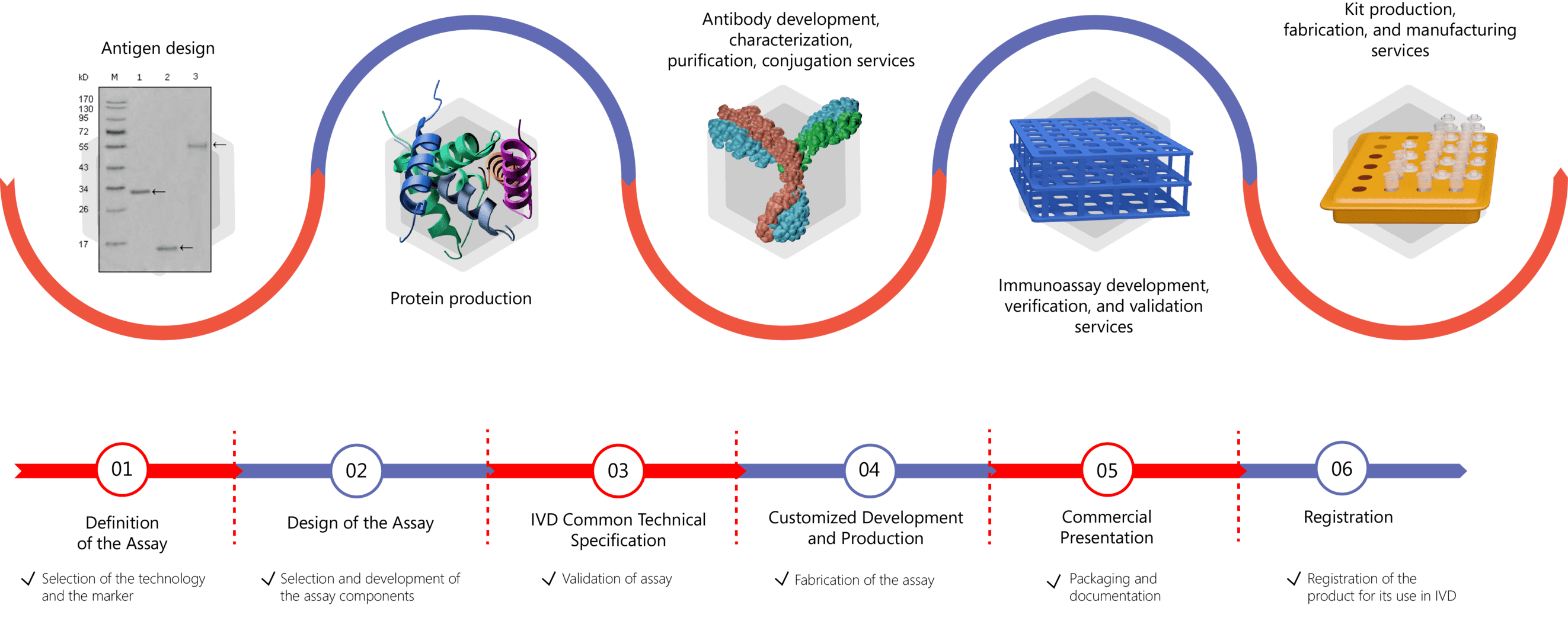As an acknowledged antibody service provider, Creative Biolabs has launched our high-quality in vitro diagnostic (IVD) antibody development services to help our customers obtain antibodies with high specificity and affinity contributing to reliable kits. Our services can be customized towards a wide range of disease biomarkers, such as C-X-C chemokine receptor type 4 (CXCR4).
Introduction to CXCR4
CXCR4, also known as CD184 (cluster of differentiation 184) is an alpha-chemokine receptor protein specific for stromal-derived-factor-1 (SDF-1, also named CXCL12). This protein is a G protein-coupled receptor (GPCR) with 7 transmembrane regions and is widely expressed by both mononuclear cells and progenitor cells in the bone marrow. The ligand SDF-1 is a secreted or membrane-bound protein and is broadly expressed by endothelial cells, osteoblasts as well as a subset of reticular cells in the osteoblast and vascular niches. The binding of SDF-1 and CXCR4 transduces a signal, inducing the directed migration of cells, involved in many biological processes including cardiovascular organogenesis, immune response, hematopoiesis, and cancer metastasis. Besides, the interactions between SDF-1 and CXCR4 are essential for maintaining populations of hematopoietic stem cells (HSCs) in adult animals and responsible for bone marrow colonization, B-cell lymphopoiesis, blood vessel formation, and cardiac septum formation.
CXCR4 as A Diagnostic Biomarker for Tumors
CXCR4 is involved in cell survival, proliferation, migration, as well as metastasis of several cancers including colorectal, pancreatic, hepatocellular, gastric, esophageal cancers, and breast cancer. Recent studies have reported the application of serum CXCR4 levels for tumor/cancer diagnosis. Łukaszewicz-Zając et al. (2016) investigated the serum concentrations of CXCL12 and CXCR4 in patients diagnosed with esophageal cancer (EC) and the results suggested that serum CXCR4 may improve the diagnosis of EC patients, especially in combination with classical tumor markers. Researchers also assessed the usefulness of chemokine receptors CXCR4, CCR5, and CCR7 for the diagnosis and prognosis of cutaneous malignant melanoma. The results suggested that the assessment of CXCR4 immunoexpression is a novel tool for predicting tumor aggressiveness in malignant melanomas. Besides, another study reported the possible diagnostic application of CXCL12 and CXCR4 as tumor markers in breast cancer patients.
IVD Antibody & Immunoassay Development Services Provided by Creative Biolabs
Antibody-based immunoassays have been widely used for detecting and quantifying antigens of interest in all kinds of samples such as serum, urine, tissue preparations. At Creative Biolabs, we offer custom-tailored IVD antibody and immunoassay development services targeting various disease biomarkers, such as CXCR4. We know the importance of the development of high-quality antibodies to produce reliable kits. With years of experience, we offer services covering the whole process of kit development. For more detailed information about what we offer for each stage of the development process, please click the links below:
- IVD Antibody Development
- Antibody Pair Development
- Antibody& Protein Conjugation
- IVD Immunoassay Development

Please feel free to contact us for more information and discuss your project needs.
Reference
- Łukaszewicz-Zając, M., (2016). “The serum concentrations of chemokine CXCL12 and its specific receptor CXCR4 in patients with esophageal cancer.” Disease markers, 2016.
For Research Use Only.